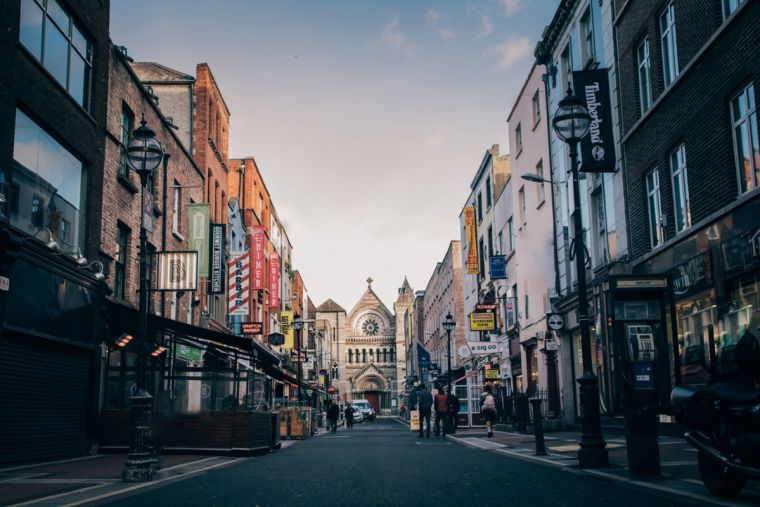Church leaders set out list of concerns ahead of Irish elections

Church leaders in Ireland have set out the changes they want to see after the elections on February 8.
In a call to "put people first", the Archbishop of Armagh, Eamon Martin, and Auxiliary Bishop of Armagh, Michael Router, spoke of their concerns around the lack of affordable housing, long waiting times for medical treatment, a surge in drug-fuelled crime and gang violence, Brexit and the dignity of life from conception to death.
"On Saturday 8 February the people of Ireland go to the polls at a very difficult and challenging time for many in our country," they said.
"Each week seems to bring its own sad news story of violence and crime, suicide, hardship or addictions. This election provides an opportunity for citizens to choose those who will govern our country and a chance to set out the changes they wish to see."
They said that "too many" young couples and families, particularly in urban areas, were living in rented accommodation "they can barely afford", with little prospect of owning their own home because they have been "priced out of the market".
They said that owning one's own home was a "basic human right" as they called on the next government to increase the availability of affordable housing.
In addition to citizens, the Church leaders said that the provision of housing must take into consideration the accommodation needs of migrants and asylum seekers.
The health system, they warned, needed reforming in order to "put patients' needs first", reduce waiting times and end "the indignity of an ill person being left on a trolley for long periods".
The Church leaders also called for additional resources to tackle an increase in the sale and abuse of illegal drugs fuelling gangland violence and crime.
"Extra resources are needed to tackle this problem at its roots, including for outreach services and rehabilitation for addicts, and for Garda support," they said.
"Appropriate legislative changes must also be prioritised to effectively halt those who 'get rich' on the misery of others."
Turning their attention to Brexit, the Church leaders said that the border areas would be "greatly affected" by Britain's departure from the European Union.
They said that border communities must be consulted on the kind of financial, technical and social support they will receive in order to "offset any negative repercussions from Brexit".
"It will be extremely important that the free movement of people and goods across the border will be maintained and that the process of peace building, reconciliation and understanding on this island is not threatened in any way," they said.
They went on to urge politicians to support laws that uphold the dignity of every human person "even when this is not the popular opinion to hold".
"Laws and policies that fundamentally contradict the moral law, such as those that would violate the life and integrity of any person at any stage, from conception to death, are fundamentally unjust and must be opposed, not only on the grounds of faith, but also by virtue of right reason," they said.
"We must make it clear to all those seeking our vote that we expect them to support the sacredness of all human life, the dignity of the person, and the centrality of the family."
They concluded by asking politicians to "lead meaningful progress" towards climate goals and care for the environment.
"It is a privilege and a social responsibility to vote in elections and something that should never be taken for granted," they said.
"We encourage everyone to exercise their right to vote, and, before doing so, to question and challenge the candidates on these important issues. We also ask for prayers for our politicians - that they may build in Ireland a truly compassionate society that respects all life and puts people first."











